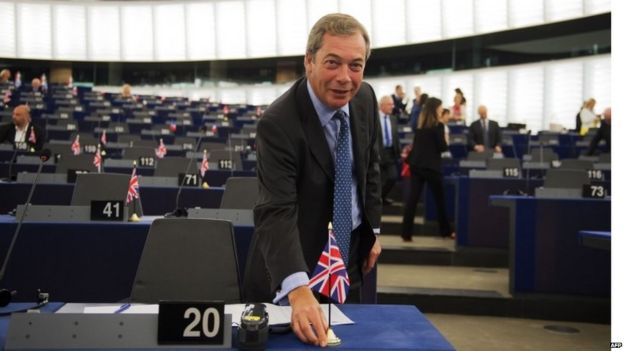The UK will "soon regret" leaving the EU, European Commission President Jean-Claude Juncker has said.
Mr Juncker told the European Parliament that Brexit would be a "sad, tragic" moment for the EU but that the 27-member union would "move on".
"Brexit is not the future of Europe. It is not the be all and end all."
But, speaking in the same debate, ex-UKIP leader Nigel Farage said the EU had "learnt nothing" from Brexit and was ploughing "full steam ahead".
In his state of the union speech in Strasbourg, Mr Juncker proposed an EU summit on the day after Brexit, 30 March 2019, in the Romanian city of Sibiu to map out the future of the European Union.
He called for closer economic and defence co-operation among member states, including more support for states outside the eurozone to prepare them to join the single currency, and reforms to the single market.
- Live: Juncker's state of union speech
- Juncker sees reform window of opportunity
- Brexit talks delayed 'for consultation'
Reflecting on the economic and political challenges that the continent had faced in recent years, he said the "wind is back in Europe's sails".
While he respected the choice of the British people to go their own way, he said the UK's exit would prove a "very sad, tragic moment in our history" which we "will always regret".
Responding to UKIP MEPs in the chamber, who had cheered the mention of the UK's exit, he added - in an off-the-cuff remark not included in advance copies of the speech - "I think you will regret it as well soon, if I might say."
But he went on to stress that Brexit "was not everything" and an increasingly confident EU would continue to advance, focusing as he put it on the big strategic challenges rather than "the small things".
'More Europe'
Mr Farage, the best known campaigner in the Parliament for the UK's withdrawal from the EU, attacked what he said were "truly worrying" plans to create a single president of the EU, an EU finance minister and a "strong EU army in a militarised Europe".
He said what was being proposed was "more Europe in every single direction... without the consent of the people".

